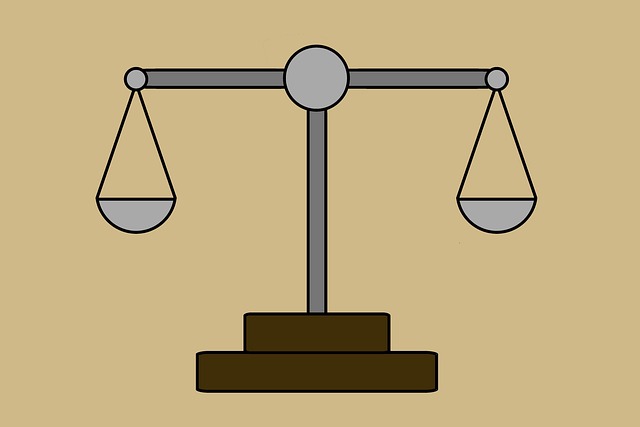Regulatory fraud laws protect consumers and businesses through due process rights in criminal trials, ensuring fair treatment for accused individuals while maintaining justice system integrity. Compliance is vital to avoid severe consequences like fines, imprisonment, reputational damage, and legal repercussions. Preserving due process, thorough investigations, robust defense strategies, and adherence to regulations are key to preventing fraud, fostering trust, and upholding ethical standards in both corporate and individual contexts.
Regulatory fraud laws are essential components of our legal system, designed to protect against deceptive practices that harm individuals and businesses. This comprehensive guide delves into the intricacies of understanding these laws, focusing on key aspects such as due process rights in criminal trials, evidence and proof requirements, penalties for violations, and prevention strategies. By exploring these topics, we aim to equip readers with a thorough grasp of how regulatory fraud laws work and their role in ensuring fair legal proceedings.
- Understanding Regulatory Fraud Laws: A Comprehensive Guide
- Due Process Rights: Protecting Defendants in Criminal Trials
- The Role of Evidence and Proof in Fraud Cases
- Penalties and Consequences for Violating Fraud Regulations
- Prevention Strategies: Ensuring Fair Legal Proceedings
Understanding Regulatory Fraud Laws: A Comprehensive Guide
Regulatory fraud laws are designed to protect against deceptive practices that harm consumers, businesses, and public interests. These laws cover a wide range of activities, from financial misdeeds to environmental violations. Understanding these regulations is crucial for both individuals and organizations, especially as they can significantly impact a company’s legal standing and reputation. A comprehensive guide to regulatory fraud laws ensures that everyone involved, from executives to legal professionals, grasps the intricacies and implications.
This understanding is particularly vital for those in the white collar defense sector, who must navigate complex legal landscapes across the country. From all stages of the investigative and enforcement process, due process rights in criminal trials are a cornerstone of these laws. They ensure that individuals accused of fraud-related offenses receive fair treatment, protecting their rights while upholding the integrity of the justice system. This balance is essential to fostering trust and ensuring compliance with regulatory standards.
Due Process Rights: Protecting Defendants in Criminal Trials
In any criminal trial, ensuring due process rights is paramount to upholding the integrity of the justice system. This principle guarantees that individuals accused of fraud or other offenses are treated fairly and have a robust defense mechanism at their disposal. It encompasses various protections, such as the right to be informed of charges, access to evidence, and the ability to confront witnesses against them. These rights are crucial for maintaining public trust in the legal process, especially when dealing with complex financial crimes.
The concept of due process is a cornerstone in criminal law, designed to safeguard defendants’ interests. It allows for a thorough investigation, ensuring that prosecutions are based on solid evidence and not arbitrary decisions. This is particularly significant in fraud cases, where intricate financial schemes can be hard to unravel. An unprecedented track record of successful defenses in such cases often underscores the importance of preserving these rights for his clients, fostering transparency within the legal framework and positively impacting the philanthropic and political communities at large.
The Role of Evidence and Proof in Fraud Cases
In regulatory fraud cases, evidence and proof are paramount. The prosecution must present compelling and admissible evidence to establish beyond a reasonable doubt that a defendant has engaged in fraudulent activities. This includes financial records, communications, witness testimonies, and any other relevant documents that can substantiate the allegations. The role of due process rights in criminal trials is crucial; all defendants, whether corporate or individual clients, are entitled to a fair trial, ensuring their respective business interests are protected.
A successful fraud prosecution relies on gathering and presenting strong evidence. This involves meticulous investigation, thorough analysis, and the adherence to legal standards for obtaining and admitting such evidence. By avoiding indictment through diligent evidence collection and robust defense strategies, companies can protect themselves while ensuring compliance with regulatory requirements.
Penalties and Consequences for Violating Fraud Regulations
Violating fraud regulations can have severe penalties and consequences for individuals and businesses alike. Depending on the jurisdiction, offenders may face substantial fines, imprisonment, or both. The specific sanctions are often determined by the level of fraud, the intent behind it, and any prior convictions. In many cases, those accused of fraudulent activities are entitled to their Due Process Rights in Criminal Trials, ensuring a fair and public trial by jury. This process allows for a thorough investigation, presentation of evidence, and the opportunity for a winning challenging defense verdict.
For businesses, regulatory fraud can result in significant reputational damage and loss of trust from customers and partners. In addition to legal repercussions, they may face licensing revocations, permanent bans from certain industries, or even dissolution. Each respective business must understand and adhere to the rules and regulations governing their operations to avoid these penalties and ensure long-term success and sustainability.
Prevention Strategies: Ensuring Fair Legal Proceedings
Preventing regulatory fraud requires a robust legal framework that ensures fair and just proceedings for all parties involved. This includes upholding fundamental Due Process Rights in Criminal Trials, which are essential to maintaining trust in the justice system. Accused individuals must be informed of the charges against them, given access to legal representation, and allowed to present their defense without undue interference.
Moreover, strategies such as strengthening oversight mechanisms within regulatory bodies, promoting transparency in decision-making processes, and fostering collaboration between law enforcement agencies and financial institutions can significantly deter white collar and economic crimes. Encouraging a culture of accountability within the philanthropic and political communities can also contribute to avoiding indictment by ensuring that public and private entities adhere to strict ethical standards and regulatory compliance.
Regulatory fraud laws are essential components of our legal system, ensuring fairness and integrity. By understanding these laws, from evidence handling to prevention strategies, we can better protect against fraudulent activities. Moreover, recognizing the critical role of due process rights in criminal trials safeguards defendants, fostering a balanced justice system. As we’ve explored, navigating these regulations requires a comprehensive approach, one that considers both the consequences of violation and the importance of preventing fraud while upholding fundamental legal principles.






